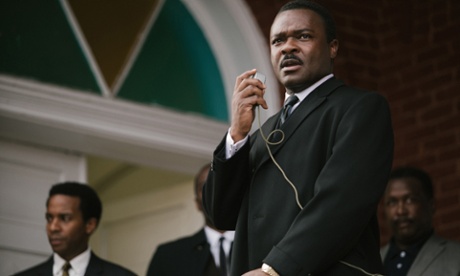Adele's finger is not the issue. Nor is it the tyrannical "suits" who cut off the Brit Award winner's speech in full flow on Tuesday. Nor is it the power of money over human discourse or of Blur's music over Adele's oratory. The issue is that speeches go on too long. They all do. Damon Albarn rambled on interminably, leaving no time for Adele to do likewise. The rudeness was Albarn's, not the suits.
No power on earth seems able to curb the urge to speak too long. Most mature adults can, if ordered, drive more slowly, cut down on alcohol, eat less fat and try to love cats. But put them before an audience with a microphone in their hand and, however nervous, they end up speaking too long. Their audience may be praying for them to stop, but to the speaker his or her own voice takes on a celestial beauty, the words the wisdom of Demosthenes. He may be Fidel Castro or Damon Albarn. It matters not. When eventually the speech ends, no one ever shouts, "More!" No audience complains that a speech was too short.
Awards ceremonies are admittedly the pits. Oscars, Baftas, Grammys and Brits numb the mind as soon as the prize is given and the winner starts to speak. Then the only hope is of anarchy, a Paltrow tear or a Redgrave rant. Actors, singers, players may be professionals in their field, but they are amateurs at the ancient art of rhetoric. Within minutes an audience that turned up craving publicity craves only a warm bed.
The proper life expectancy of Adele's speech was a matter of seconds: "Nothing makes me prouder, yeah, than coming home with six Grammys, then coming to the Brits and winning album of the year. I am so proud to be British and to be flying the flag and in the same room as all of you." The compere cut her dead, though not out of respect for Cicero, but because she had been driven against the next ad break by Albarn's earlier ramblings. He should have been axed sooner, but all chairmen have a dread of telling speakers to shut up, as if intervening in holy worship.
There is a bizarre amateurism about modern public speaking that would have amazed the ancients. Event hospitality is costly and sophisticated. The food is haute cuisine, the drink well chosen, the flowers glorious and the clothes expensive. Thousands of pounds are spent on the venue, the music, the table setting. Conversation flows and friends are made.
Then someone rises to make a speech and the evening grinds to a halt. If given five minutes, the speaker takes 10, if given 20 he takes 40, in a geometrical expansion of tedium and torture. I have heard even good speakers, such as Neil Kinnock and Simon Schama, clearly unable to stop, until faces collapse into plates and guests stagger to the exit.
Rhetoric is a skilled art, extraordinarily neglected. In the medieval schools, it joined grammar and logic in the core "trivium", or three paths to learning. Mastery of the spoken word was considered as important in education as the power of the pen. It held the key to the art of persuasion. As Hazlitt said, the business of oratory is "not to inform but to rouse the mind … to add feeling to prejudice and prejudice to feeling."
Research apparently shows that most audiences can recall little beyond the first five minutes of any talk. The brain simply shuts up shop, to await that ever-exhilarating phrase "and now finally". Listeners know this, yet they forget it when they become speakers. Probably the most famous speech in history, Lincoln's Gettysburg address, had just 10 sentences and 272 words. It followed a two-hour speech by a man called Everett, which no one remembers.
The adjective rhetorical has become a term of mild abuse. Few speakers distinguish between uttering "the living sentence of a working mind" and reading out a text. They fumble with a sweat-stained typescript or shuffled crib cards, like karaoke singers without a backing track. The cadence of their normal speaking voice is lost in a reading drone. Some even parade their loss of confidence with idiot "bullet points" flashed on a screen behind their heads. Nothing induces narcolepsy in a listener than having to refocus the eye back and forth between speaker and screen.
For all this, public oratory is booming, a sign of the rise of the "post-digital" retro-culture. People flee the tyranny of the daily screen in search of reality, participation and live experience. Talks, debates, colloquies, seminars, events are astonishingly popular. Speaking agencies proliferate, and people pay good money for good speakers. I am told that poetry courses now emphasise public performance.
This should have led to a boom in the teaching of rhetoric. The writer Sam Leith, in his admirable guide to the subject, You Talkin' to Me?, extols it as "what persuades and cajoles, inspires and bamboozles, thrills and misdirects … It causes governments to rise and fall, best men to be shunned by their friends' brides and sensible adults to march with steady purpose towards machine guns."
Rhetoric is the best lubricant of democracy, because it is the most intimate and direct. The rhythm of words well-deployed is not just music to the ear, it is power projected. To be able to address others with confidence is a fundamental skill. To be inarticulate is to be handicapped.
Until educators take the subject seriously, speech-making should be kept to professionals. Brit awards singers should say thank you and promptly sit down. They should not gesture rudely at their listeners; their listeners should gesture rudely at them.











